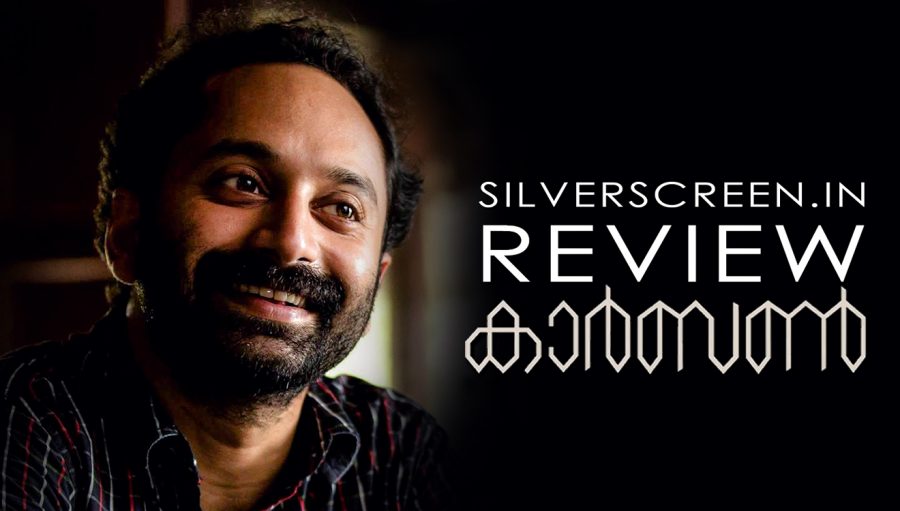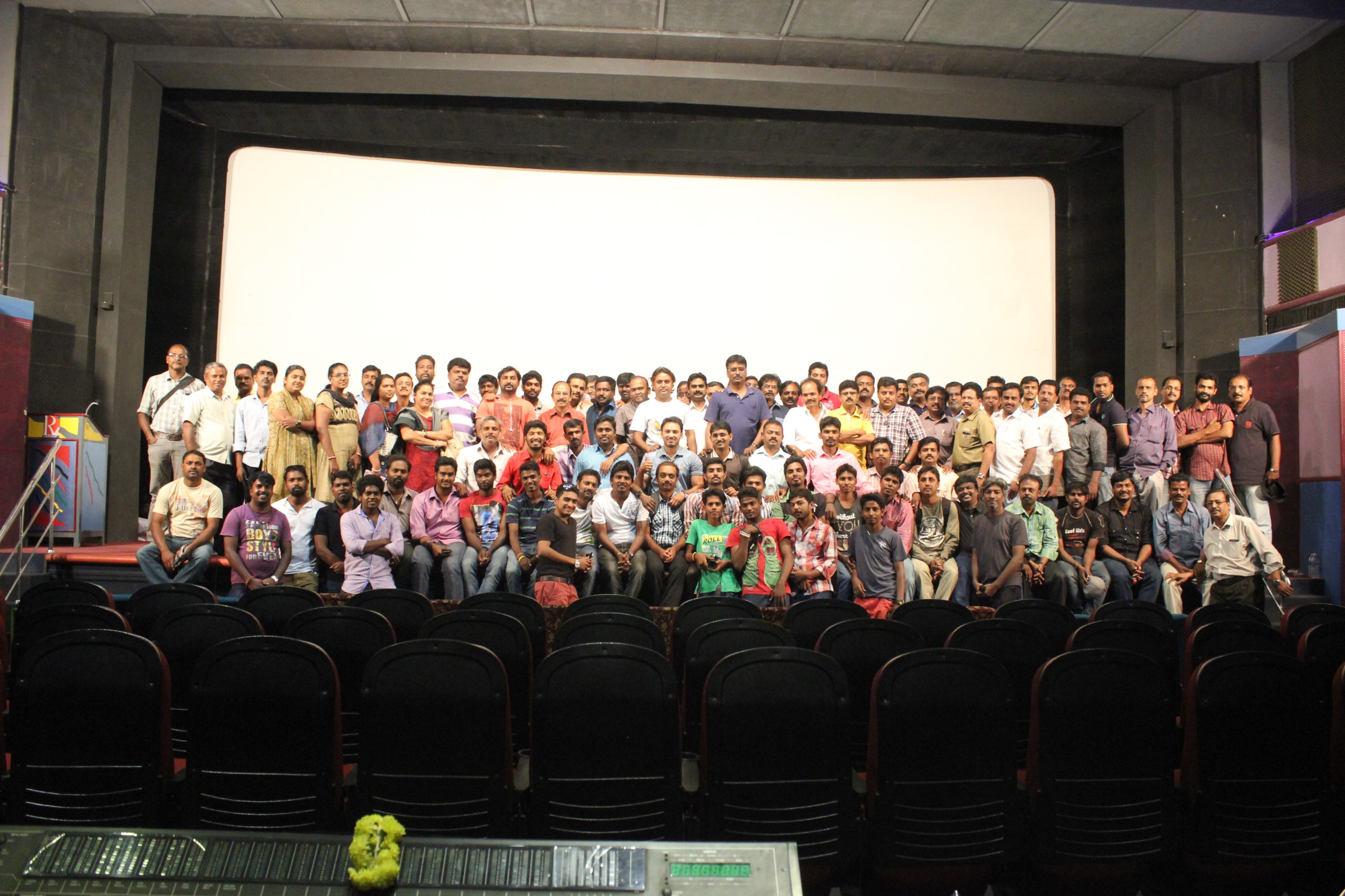In cinematographer-filmmaker Venu’s Carbon, a young man from the city takes refuge in a dense rainforest to escape a bunch of loan sharks. His stint as a caretaker in a dilapidated palace in the wilderness is far from pleasant. The woods loom large over him like a giant. The remoteness of the place terrifies him. Sounds of the jungle keep him awake during nights. But what intrigues him the most is the mythical tale of an ancient treasure trove hidden somewhere inside the forest, guarded by an army of the ‘undead’. The ancient myth warns that those who go in search of the treasure will never return alive, but the man is determined to give it a try.
Carbon is an immersive cinematic experience. One of the hardest feelings to contain, when you walk out of the cinema hall after watching the film, is the urge to leave society behind and embrace the wild. The imagery of nature, shot by veteran cinematographer KU Mohanan, is breathtaking and poetic. The film’s music, designed by Vishal Bhardwaj and Bijibal, creates the perfect mystic ambiance for an allegorical tale to unfold.
In Venu’s previous directorial Munnariyippu, the lead character was a man, CK Raghavan (Mammootty), shrouded in enigma. It was the audience’s task to decipher him – to interpret his acts and thoughts. In Carbon, the protagonist is a confused man, desperately trying to make sense of his own psyche.
One of the biggest assets of Carbon is its sharp and restrained sense of humour. The film doesn’t let itself drown in a flux of solemn self-importance – a dreary trap that many films with similar themes inescapably fall into. It has a hearty laugh at the greed and vanity of modern man, and the absurdities of current politics. The protagonist’s efforts to bypass the struggles of adulthood by making some quick-money, becomes fodder for some good cringe-comedy in the first half.
Unfortunately, the film turns bleak in the final portions where the narrative starts groping in the dark without a sense of direction. The sheen of humour is lost, and the spiritual quest of the protagonist culminates in a patchy dud.
The characterisation of the protagonist, Sibi Sebastian (Fahadh Faasil), is finely written. When we see him first, he is trying to sell an emerald to an opulent business man. When they are close to striking a deal, he reveals that the stone is not in his possession. Later, he gets obsessed with a tantalising treasure that no one has ever really seen. Does he have anything in hand at all, other than his never-say-die attitude? Sibi doesn’t mind lying through his teeth, and emotionally manipulating people for his needs. He isn’t extraordinarily intelligent or courageous. Venu has managed to retain a consistency in Sibi’s nature throughout the film, never succumbing to the urge to bring in a radical transformation to his character.
It takes an exceptionally talented actor to play this role believably, and also garner the audience’s affection and sympathies. Fahadh Faasil brings out the subtle slyness in Sibi beautifully, without ever going over the top. He internalizes the mental and physical trauma that Sibi undergoes, and even in the final lacklustre sequences, he manages to hold the film together to a large extent. There is a moment in which he imagines robbing a bank like a professional, while passing by it. Inside his head, he is a movie hero, dexterously pointing a pistol at employees and customers at the bank, tackling anyone who tries to stop him. Amused by this day dream, he laughs an animated laugh. It’s a brief moment which could have easily gone unnoticed, if not for Fahadh. The actor fleshes out the role with such marvelous detailing.
Carbon isn’t a survival thriller like 127 Hours or Into The Wild. Its aspirations lie elsewhere. When the protagonist comes face to face with the fierce forest, the film turns its focus on his reflections on life which come as memory flashes and hallucinations. The journey he embarks on and the characters he encounters don’t amount to a redemptive, life-altering arc. It isn’t about surviving the fatal trek, but about a spiritual quest that goes beyond life and death.
The film attempts to walk a tight rope between fantasy and reality. Myths passed on from one generation to another, about headless soldiers roaming the forest, are impressively recounted. There is a spine-chilling dream sequence that foreshadows the dangerous quest Sibi will soon undertake. In moments of hallucination, he watches his woman companion turn into a form of nature that would herald his journey.
One of the most striking sequences in the film is the one where Sibi goes to an old feudal residence to deal the family’s pet elephant. The matriarch of the house (Praveena) greets him and informs him that the owner of the beast, her father, is inside, bed-ridden. She sits on a chair across him, and explains to him the features of the animal and the legalities of the deal. Her towering presence slightly unsettles him, and when he leaves the house, the mahout of the elephant reveals to him a secret that will haunt him forever. Somewhere in the middle of the sequence, there is a line that separates reality from dreams, but you never really see it. The mahout will later reappear before Sibi in the latter’s bout of hallucination, looking for an invisible elephant in the forest.
*****
Mamta Mohandas’s Sameera is an impressive character. A little while into the film, she enters, driving her Gypsy into the porch of the building where Sibi lives. We don’t get a glimpse of her face at first. She walks straight into the house, and the camera hastily follows her as she goes from one room to another. She always takes the lead, and the film never lets you have a complete understanding of her, other than what is apparent. She is smart, confident and self-reliant; a perfect foil to Sibi. There is a subtle gender role reversal in the film. It is presented astutely, without making a statement. His head is full of muddled thoughts, while she seems to have greater clarity on life. Most importantly, the film doesn’t treat her as an object of desire. The only object of desire in the film is the evasive treasure trove.
Having said that, Mamta’s obvious sophisticated urbane looks takes away the credibility of the character which is supposedly that of a survivalist. There is no blotch or smudge on her skin that can speak for her ‘jungle junkie’ lifestyle. Mamta has an athletic physique, but she doesn’t really resemble Sameera.
Recommended
Carbon‘s tagline says, “Ashes And Diamonds”, and the film ends on a point somewhere between these two. It is neither an extraordinary feat nor a forgettable, inconsequential work. In his third outing as director, Venu has greater grip over his distinct style of narration. But you can’t get rid of the feeling that the film is sketchy; as though there are loose ends to be tied together to get that perfect film. What saves the day is Fahadh Faasil who proves yet again that he is one of the few finest artistes in Indian cinema with a rare capacity to make up for the flaws in the writing part. It is unfair to compare him to vintage Mohanlal, for the two actors have thoroughly different acting styles. Fahadh is quintessentially new generation; the part of an era that doesn’t require superstars, but talented actors who can be anything on screen – flawed, perfect or plain trivial.
*****
The Carbon review is a Silverscreen original article. It was not paid for or commissioned by anyone associated with the movie. Silverscreen.in and its writers do not have any commercial relationship with movies that are reviewed on the site.



